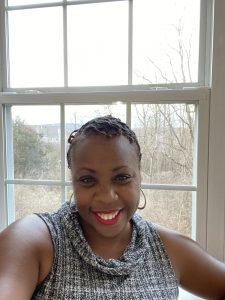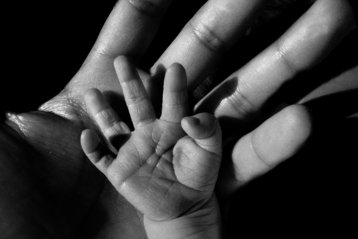The woman had tried to flush her baby down the toilet in a motel. She deserved my ire.
I immediately dismissed her as less-than for not, at least, leaving the baby in a warm blanket. Why try to kill him– a near-term boy who probably cried as he hit the cold toilet water. There was just no state of mind that would justify such a heinous act.
I didn’t want to see her, didn’t want to force myself to smile, and didn’t want to be empathic. That’s just not how I felt. And, I would have to walk past the police standing outside her door, which only added to my discomfort.
I sat at the computer in the middle of the nursing station and reviewed her labs and read the notes written on the previous shift. “She’s fine. She’s ready to go to jail now,” I scoffed.
“Please be kind. She has been through a lot.” Bridget’s hand reached toward me as she spoke. She had been a nurse at this hospital for 25 years. Bridget was a white nurse who carried a toughness that belied her small frame and olive complexion. The type of nurse that every doctor wants around in the midst of an emergency. She has a keen clinical eye and calmly executes her duties.
“Are you kidding me?” I thought without responding to Bridget’s plea. The hotel maid heard the baby crying when she came in the clean the room. Who would do such a thing?
As I walked down the hall, a swarm of emotions filled my head. I was embarrassed by the admonishment. It was my role to exhibit professionalism and forgiveness. Confusion and surprise also visited my mind. In 25 years I have never heard a labor and delivery nurse defend an abusive mother. Not once. I have worked in six different hospital systems in the Northeast. Yet, today I was alone in my wrath because my negative emotions were not aligned with that of the clinicians around me.
Walking towards the patient’s room, I tried to cool my disgust: maybe she was raped and felt nothing but hatred for the baby; maybe she was a prostitute and was under duress; maybe she was homeless; maybe mentally ill, etc.
I said good morning to the police officers as I entered the room.
At first I saw a pair of slender feet that managed to escape the cover of the blanket. The room was too warm. I was thinking about the temperature when the room, slowly, came into focus. The shades were drawn. A glance down at my notepad gave me a few seconds to put on my “doctor face.” I took a deep breath and managed a closed-lipped smile. It took a few minutes more for the scene to register.
The patient was white. She was not a Black mother.
I had to consciously un-wrinkle my face as I took in the blue eyes and light brown hair sitting up in the bed. He faced displayed no emotion whatsoever.
Wow.
I, a black physician, had assumed that she, the patient I deemed horrible, was a black mother. The picture of the crack mom is so inked into my mind. It’s a story printed there by decades of imagery that consistently delivered negative images of black mothers. It never occurred to me that the baby who was found bloodied, screaming, cold, abandoned in the toilet of a hotel room, came from a white woman. And, of this I am almost certain, Bridget would have never had come to her aide had she been a black woman.
Unconscious bias is all around.
it’s like the gleeful swimmer who is unaware that a shark is close by, until the shark bites. Or, like the fisherman who merrily gets his fish having never appreciated the harm done to the beings in the ocean by tactics that are harmful. We’re both guilty—Bridget and I. But I thank her still, for holding up the mirror.
I’m a sorry, Black mother, for my participation in the processes that contribute to your deaths. Alia McCants died after giving birth to her twins: implicit bias was responsible for her death. We can train our doctors and clinicians to do better.
I was kind to the patient when I spoke, as I recovered from my fugue. Every patient deserves professionalism and respect. Every person deserves a chance to explain, or at least to ask for forgiveness. This should be the expectation of every clinician, no matter his or her creed or color, sex, gender—whatever the type of PRIDE celebrated. Certainly, Covid had made getting care even more difficult for women in general. As we emerge from the pandemic, we need to keep our attention steadfast on the issue of racism in healthcare in America.

~Juliet_MD~
